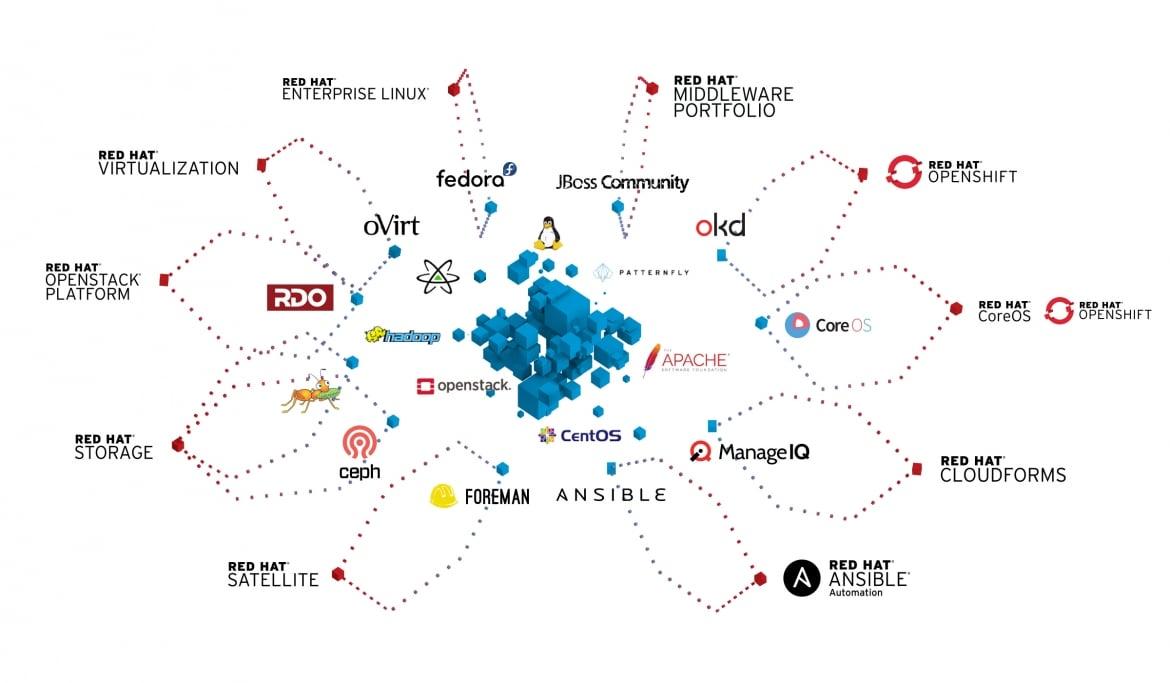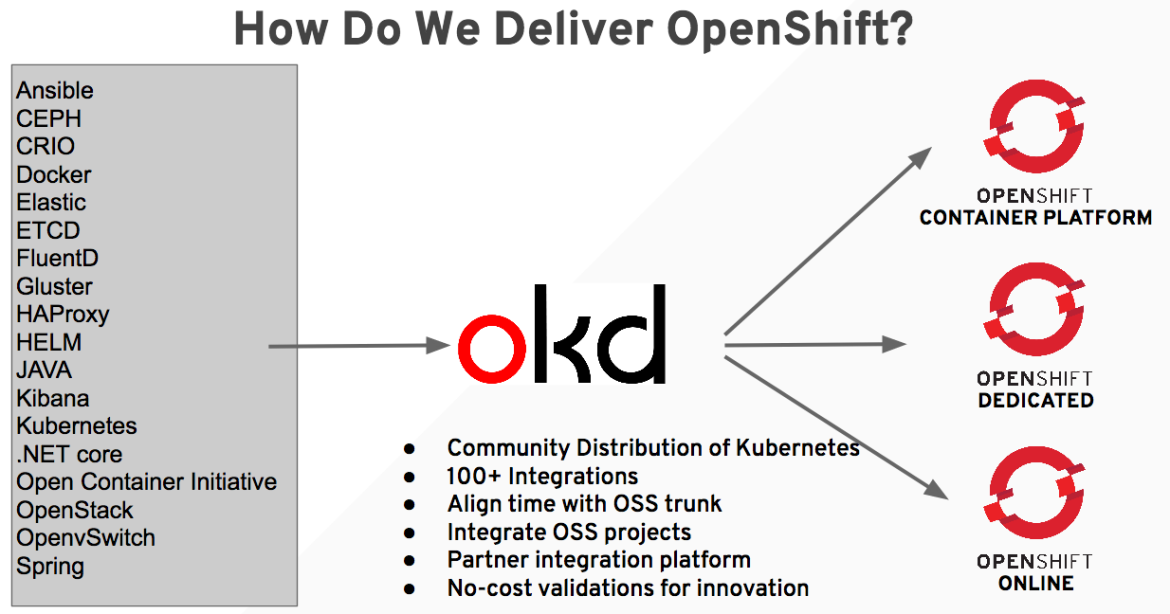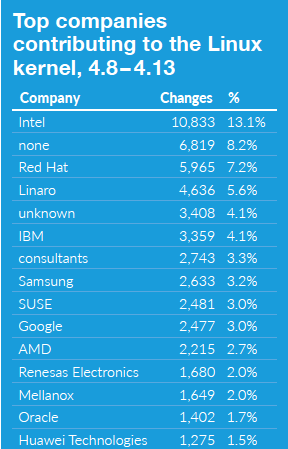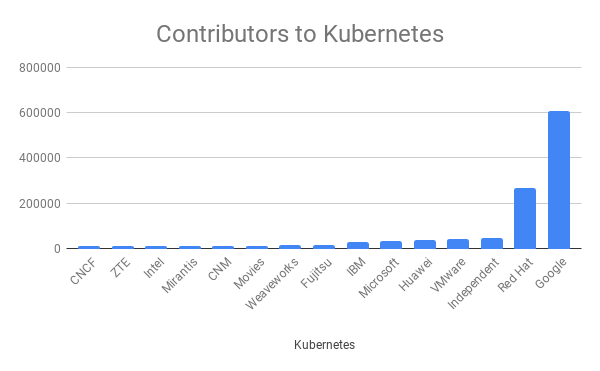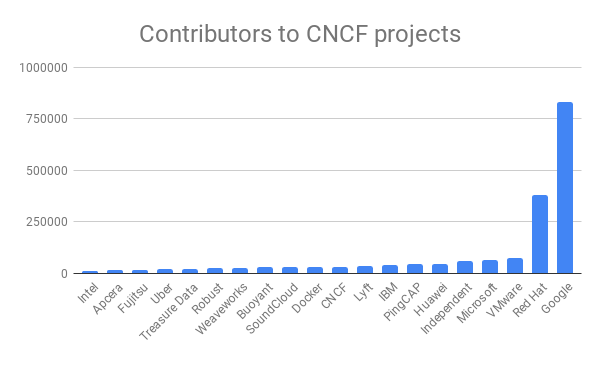Red Hat blog
The value of commercially supported 100% open source software
In a large commercial kitchen, for example hotels or cafeterias, chefs collaborate to create the recipes and meals. Sure, there is more than enough work for one person, and tasks are divided into chopping, mixing, cleaning, garnishing; but the recipe is collaboratively created.
Suppose one chef broke away and created his or her own recipe? How would the kitchen maintain standards, tastes and reputation? Developing software using open source principles follows a similar theory. (Watch a short video of this process here)
CC Pixabay
When software is developed using open source philosophies, an upstream repository of the code is accessible to all members of the project. Project members contribute to the code, test it, write documentation and can create a solution from that code to use or distribute under license. If an organization follows the main stream or branch of the upstream code their solution will receive all the changes and updates created in the upstream repository. Those changes simply “flow down” to the member’s solution.
However, if a member organization forks the code — if they create a solution that strays from the main stream — their solution no longer receives updates, fixes and changes from the upstream repository. This organization is now solely responsible for maintaining their solution without the benefit of the upstream community, much like the chef that created his/her own recipe and then lost out on developments and changes made by the group of cooks in the kitchen.
Red Hat has a 100% upstream first philosophy. Red Hat software is not forked from the upstream. Below is an illustration of contributions to some of the key open source projects, comprising OpenShift, to which Red Hat contributes:
Red Hat OpenShift is not a fork of upstream Kubernetes, rather it is a merger of key open source projects required to deliver an enterprise ready solution.
Linux Kernel
Red Hat is the second largest corporate contributor to the Linux kernel. This means Red Hat engineers and support staff are well versed and able to resolve customer issues involving the Linux kernel. Every application container includes part of the Linux distribution and relies on the Linux kernel, which is the center of the Linux Operating System.
Source: Linux Kernel, Development, Report, 2017: Jonathan Corbet, LWN.net; Greg Kroah-Hartman, The Linux Foundation https://www.linuxfoundation.org/2017-linux-kernel-report-landing-page/
Contributions to Kubernetes
Kubernetes, as defined by the project, is an open-source system for automating deployment, scaling, and management of containerized applications. Red Hat is ranked near the top for Kubernetes contributions
Source https://k8s.devstats.cncf.io/d/9/companies-table?orgId=1
Contributions to Cloud Native Computing Foundation
The Cloud Native Computing Foundation, as defined by the foundation, builds sustainable ecosystems and fosters a community around a constellation of high-quality projects that orchestrate containers as part of a microservices architecture. CNCF serves as the vendor-neutral home for many of the fastest-growing projects on GitHub, including Kubernetes, Prometheus and Envoy, fostering collaboration between the industry’s top developers, end users and vendors
https://all.devstats.cncf.io/d/5/companies-summary?orgId=1
Conclusion
The high level of contributions by Red Hat to Kubernetes and associated projects demonstrates that Red Hat is:
- Committed to the projects.
- Investing time and money.
- Engineering Red Hat solutions to be 100% upstream compliant.
Unlike a chef that may create his or her own recipe and thus not benefit from the developments in the central kitchen, Red Hat never forks upstream software. Thus users of Red Hat software can be confident that they will get software that has been debated and vetted in the public forum, letting it mature before it reaches their networks and data centers.
Watch a three minute video of this process
About the author
Jonathan Gershater joined Red Hat in 2013. Prior to Red Hat, Gershater worked at Trend Micro, Sun Microsystems, Entrust Technologies and 3Com. At Red Hat, Gershater leads market analysis for Red Hat’s open hybrid cloud platform, OpenShift, and related technologies.


